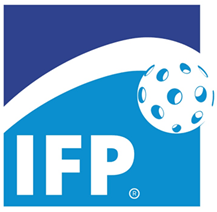IFP GALACTIC HEADQUARTERS
PO BOX 12345
SOMEWHERE ON EARTH, 99999
Op-Ed
The International Federation of Pickleball (IFP) stands behind our motto:
“Leave No Country Behind”
Authors:
Marlon Schulman, Esq., Board Member, Legal Advisor
Carl Burnett, IFP Vice President
The IFP’s highest priority is to have the sport of pickleball (the world’s fastest-growing sport), included in international games and declared an Olympic sport for the Summer Olympics.
This “Op-Ed” will present the IFP’s plan to accomplish that goal. Additionally, this op-ed evidence the fairness of the plan to all countries on the international stage as well as show the proper consideration for equal representation to those countries where the sport is especially blossoming.
Note: This op-ed does not seek to address whether multiple organizations within one country should have “one vote” in the federation. It addresses whether the International Federation of Pickleball should allow for proportional voting in the federation based on the size of an individual country’s membership.
Becoming sanctioned by the International Olympic Committee (IOC) is an arduous process. During this recognition process the sport of pickleball will also be recognized and welcomed into other international games like the International Masters Game and the Invictus Games. That recognition, sanctioning, and acceptance of the sport in other international games will enable the sport of pickleball to gain early sanctioning by the IOC. To make pickleball an Olympic sport, the following steps need to be taken (not necessarily in the order, presented):
- The sport must have enough international participation and recognition to demonstrate its popularity and competitiveness.
- Pickleball must meet the criteria and standards set by the IOC for all Olympic sports, such as rules and regulations, facilities, and athlete welfare.
- The sport must have a clear and well-organized governance structure with equal voting representation, including an international governing body and anti-doping measures.
- The sport must be recognized and part of other international sporting competitions.
- National pickleball organizations around the globe must belong to a single international federation. The International Federation of Pickleball (IFP) is the largest, oldest, and most recognized international pickleball federation today.
- The sport must be able to demonstrate its sustainability, including economic viability and continued growth.
International sports federations are responsible for governing the sport at an international level. They play a crucial role in promoting the sport and ensuring its growth and development worldwide. The organizational system of these federations is a critical aspect of their functioning and significantly impacts their ability to
achieve their goals.
Any international sports federation admitted to the IOC must demonstrate that it can govern the rules and regulations of the sport globally. Global rule making and officiating the administration of the rules and regulations is a federation’s primary mission.
In developing and applying the rules and regulations, equal representation is required to ensure that all members of a deliberative body have equal rights to ratify the promulgation of the rules and regulations. Furthermore, member organizations must equally apply the rules and regulations. Officials who officiate the game must be trained to use the agreed-upon rules regardless of member size.
The development of the rules and regulations cannot be determined by the size of member organizations, but by the equal recognition of the member nations who will contribute to the development and administration of the rules of pickleball.
Historically, proportional voting or the Penrose Method has not been adopted for any notable decision-making bodies to include the United Nations Parliamentary Union, the Council of the European Union, and the International Olympic Committee and its member organizations. Extensive analysis confirms that the "one-country-one-vote" system as adopted by the IFP is the most appropriate voting system to be used for pickleball’s international organization.
The "one-country-one-vote" system ensures equal representation for all member countries, regardless of their size, population, or economic status. Each country has an equal say in the rule-making process and an equal opportunity to influence the direction of the sport. This system is critical in fostering a sense of unity and cooperation among member countries, as it demonstrates that all countries are valued equally and their opinions matter (i.e., Leave No Country Behind”).
Equal Representation:
One of the main advantages of a “one-country-one-vote” system is that it provides equal representation for all members, regardless of their size or level of achievement. This is particularly important in a global sports federation, where smaller countries or those with less successful teams can feel marginalized by more powerful nations. By giving every country an equal say in the decision-making process, a “one-country-one-vote” system helps to ensure that the federation is truly representative of all its members.
Fairness and Transparency:
The "one-country-one-vote" system is also critical in ensuring fairness and transparency in decision-making. This system eliminates the possibility of any one country or group of countries having disproportionate power and influence over the direction of the sport. The voting process is simple and straightforward, making it easy for all member countries to understand and participate in the decision-making process.
Encourages Participation:
This system encourages member countries to participate in the decision-making process and be actively involved in the development of the sport, its rules, and regulations. It provides an incentive for countries to become members of the international sports federation, as they know that their opinions will be valued and that their votes will count. By encouraging participation, the "one-country-one-vote" system helps to build a strong, inclusive, and collaborative community within the international sports federation.
Promotes Democratic Processes:
The "one-country-one-vote" system promotes democratic processes within the sports federation. This system provides a platform for member countries to express their opinions and perspectives, and for the federation to make decisions based on the collective opinions of its members. This promotes transparency and accountability and ensures that the decision-making process is fair and inclusive.
To some, especially those in a country where pickleball is especially popular and blossoming, the “one-country-one-vote” system may not seem to be the best system of governance for a federation. This is because it can seem to result in an unequal representation of the population, where the interests and opinions of citizens in the larger country are not adequately represented.
While there are alternative governance systems that aim to address this issue, such as weighted voting based on population size or population representation in a federal legislative body. But that reasoning is flawed. They are not considering the total plan as conceived by the IFP. Those potential problems are addressed in the IFP total plan as those countries and their populations are being given “weighted representation” in the “co-op” entity. It is there, in that key entity, that the “voice of the masses” will be given full throat.
Pros of “equal representation” in a global sports federation:
- Encourages fairness and inclusiveness: Equal representation ensures that all nations have an equal voice and are equally represented in decision-making.
- Promotes diverse perspectives: With equal representation, diverse perspectives and ideas are brought to the table, leading to better decision-making.
- Supports growth and development of smaller nations: Equal representation gives smaller nations the opportunity to be involved and contribute to the growth and development of the sport.
- Encourages fairness and inclusiveness: Equal representation ensures that all nations have an equal voice and are equally represented in decision-making.
Summary of existing reservations regarding “equal representation” in a global sports federation:
- May not reflect the actual state of the sport: The level of participation and success of different nations may not be equally balanced, and equal representation may not accurately reflect this.
- Can slow down decision-making: With equal representation, it may take longer to reach a decision as all nations need to agree on a course of action.
- May limit the influence of nations where the sport participation is greater than in others: The more “successful” nations may have more expertise and resources to offer, and equal representation may limit their influence in decision-making.
- Limits representation from dominant countries: Equal representation may limit the number of representatives from larger, more influential countries, which can reduce their ability to shape the direction of the federation.
- Challenges in implementing equal representation: Implementing equal representation in practice can be challenging, as some countries may have smaller sports communities or limited resources.
A New Direction
The IFP is launching in a new direction with a different organizational framework. The IFP framework consists of three distinct, but interrelated organizations.
The new International Pickleball Federation (IPF) will exclusively define the rules of pickleball and provide oversight of the games of pickleball based on the equal voting representation of member nations. The administration of the sport of pickleball includes establishing the international rules for pickleball competitions, selecting rating systems for players, training, and certifying tournament officials, and getting pickleball accepted in multinational multi-sporting events and competitions, including the Olympics games.
The International Pickleball Cooperative Tournament Corporation (IP Coop) will manage the operation of all IPF-sanctioned tournaments globally. The cooperative structure provides direct individual member ownership of the operations of all IPF Athletic and Recreational Complexes (ARCs) facilities and the events held at these facilities. The ARCs host multi-gaming sporting events, including pickleball. All profits will be passed through to coop members. This cooperative ownership structure emulates the community approach of pickleball communities globally, it was chosen to enable community members to have an important, viable stake in the profitability of pickleball and ARCs. Another primary goal of selecting this model is to allow amateur and professional players to no longer be controlled by institutional owners and allow players to be aligned with operational tournament organizations as unrestricted free agents.
The
International Pickleball Investment Corporation (IP Investments) will
provide the capitalization and management of all investments of the International Pickleball Federation (IPF) and the International Pickleball Cooperative Tournament Corporation. The investments include constructing and leasing the IPF Athletic and Recreational Complexes (ARCs), media rights and syndication contracts, intellectual property and licensing, branded merchandise, and product sales and licensing.
As can be seen, the new pickleball sport framework considers the breathtaking success/participation of pickleball in certain countries (“follow the money”) while preserving on the world stage the respect, dignity, and voices of individual countries.
In conclusion, the "one-country-one-vote" system, to be implemented by the IPF, is the best organizational system for an international sports federation. It ensures equal representation, fairness, and transparency, encourages participation, and promotes democratic processes. This system helps to foster a sense of unity and cooperation among member countries and promotes the growth and development of the sport at an international level. It allows members and players to actually benefit from their passion for the sport, both globally and financially. It creates and protects the creation and preservation of rules and regulations on a global scale while providing for equal application and continued adherence to those very parameters.
It epitomizes the new motto of the IPF - “No Country Left Behind”.
International Federation of Pickleball. All rights reserved.

